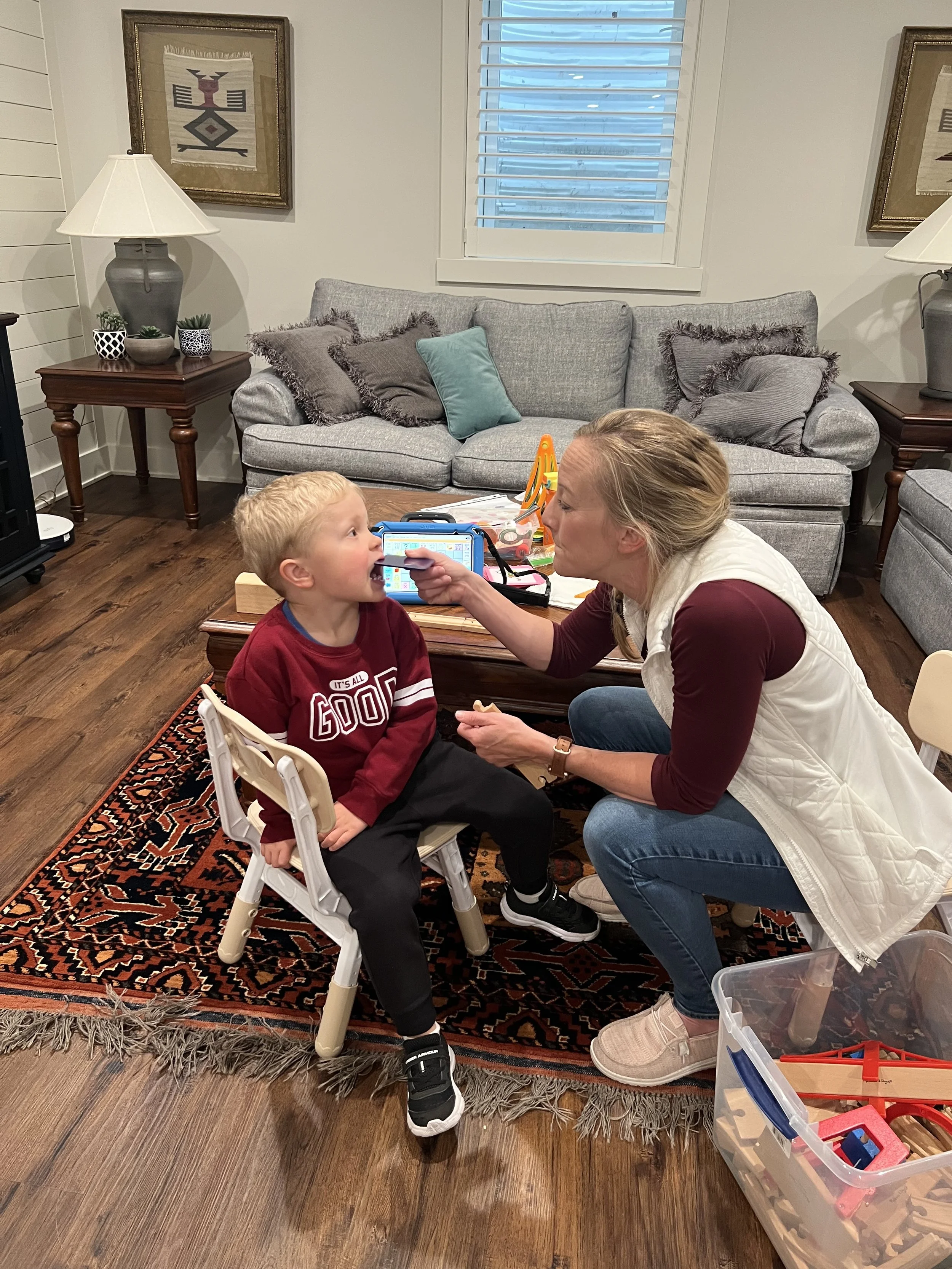Social Language Therapy in Frankfort, Mokena, and Manteno, IL
Social Language Therapy focuses on helping children develop the communication skills they need to interact successfully with others. While some children may understand vocabulary and grammar, they may struggle with knowing how to use language in social situations. This therapy addresses challenges such as initiating conversations, understanding nonverbal cues, maintaining appropriate eye contact, and taking turns in dialogue. At Fisher-Jost Therapy, our SLPs create engaging, supportive sessions that make learning these essential skills both fun and functional.
What Are The Benefits of Social Language Therapy?
Strong social communication skills are the foundation for building friendships, participating in school, and thriving in everyday environments. Social Language Therapy equips children with the tools to express themselves clearly, interpret the emotions of others, and respond appropriately in group settings. These skills foster self-confidence, independence, and resilience, helping children feel more comfortable and capable in a wide range of situations, from classroom discussions to playdates.
Who Can Benefit from Social Language Therapy?
Social Language Therapy is particularly beneficial for children who have difficulty with pragmatic communication—the social rules of language. This often includes children with autism spectrum disorder, ADHD, social communication disorder, or those who simply struggle to connect with peers. Whether your child has a formal diagnosis or just needs extra support with navigating friendships, this therapy is designed to strengthen their ability to interact meaningfully with others and enjoy richer social experiences.
Signs Your Child May Need Social Language Therapy
Not all children develop social communication skills at the same pace, and it can be challenging to know when a child might benefit from extra support. Social Language Therapy is designed to help children who struggle with understanding and using language in social contexts. If your child frequently experiences frustration, misses social cues, or has difficulty connecting with peers, these may be indicators that therapy could help. Some common signs to look out for include:
Difficulty starting or maintaining conversations
Limited use of eye contact or gestures during communication
Trouble understanding sarcasm, humor, or figurative language
Interrupting others or struggling to take conversational turns
Difficulty forming or keeping friendships
Rigid or repetitive conversational topics
Avoiding group activities due to communication challenges
Parent Involvement & Home Strategies for Social Language Therapy
Parents and caregivers play a crucial role in helping children generalize social communication skills outside of therapy sessions. By consistently and intentionally modeling, prompting, and reinforcing social interactions at home, you can help your child feel more confident and capable in a variety of settings. The following approaches provide practical ways to support your child’s social language growth while making learning natural, engaging, and meaningful:
Model Conversations – Show your child how to greet, ask questions, and respond in a natural way
Play Practice – Use pretend play to role-play social situations like sharing, turn-taking, or joining a group
Encourage Eye Contact – Prompt gentle reminders during conversations to build awareness
Read Social Stories – Use books to talk about emotions, perspectives, and problem-solving
Praise Effort – Celebrate attempts at social interaction, even if they aren’t perfect
Create Opportunities – Arrange structured playdates or group activities to practice skills in real life

